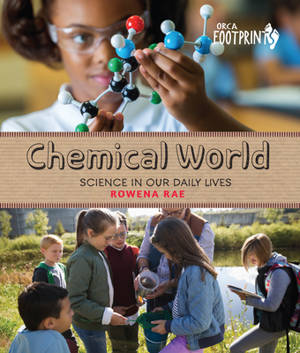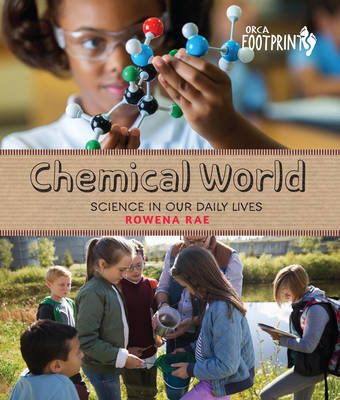
- Afhalen na 1 uur in een winkel met voorraad
- Gratis thuislevering in België
- Ruim aanbod met 7 miljoen producten
- Afhalen na 1 uur in een winkel met voorraad
- Gratis thuislevering in België
- Ruim aanbod met 7 miljoen producten
Omschrijving
Despite people using both natural and synthetic chemicals with (mainly) good intentions, some chemicals have had unintended negative consequences.
Chemical residues have contaminated ecosystems the world over and are compromising the health of many ecosystems, animals and humans. The goal of Chemical World: Science in our Daily Lives is to introduce readers to basic chemistry and chemical history, and to show how chemicals are used for particular reasons but sometimes turn out to be harmful to environmental and human health. It invites readers to take a look at the world around them and ask questions about what's in their environment and how the things they use and eat every day can affect their own health and the planet's health.
Chemical World: Science in Our Daily Lives explores some of the materials--all of which are made of basic chemical elements--that humans use or come into contact with in their day-to-day lives. Some of these chemicals are naturally occurring--clay, mercury, lead. Others have been synthesized by chemists during the past 150 years and used in a bewildering array of products ranging from roof shingles to toothpaste. Many chemical inventions, as well as naturally produced chemicals, have had profound effects on food supply, developing medicines and creating hosts of useful items for modern life.
Specificaties
Betrokkenen
- Auteur(s):
- Uitgeverij:
Inhoud
- Aantal bladzijden:
- 48
- Taal:
- Engels
- Reeks:
- Reeksnummer:
- nr. 17
- Leeftijd:
Eigenschappen
- Productcode (EAN):
- 9781459821576
- Verschijningsdatum:
- 12/05/2020
- Uitvoering:
- Hardcover
- Formaat:
- Genaaid
- Afmetingen:
- 206 mm x 244 mm
- Gewicht:
- 476 g

Alleen bij Standaard Boekhandel
Beoordelingen
We publiceren alleen reviews die voldoen aan de voorwaarden voor reviews. Bekijk onze voorwaarden voor reviews.












